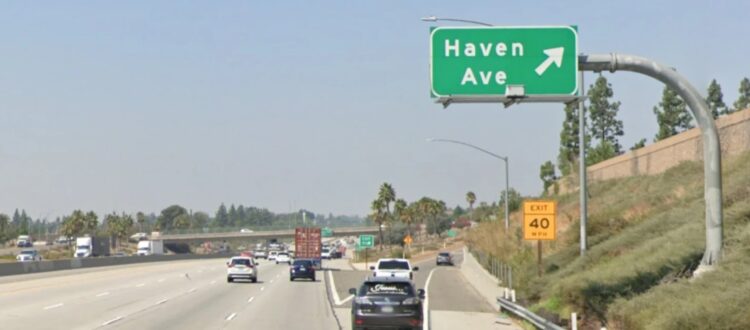By: Antonio Ray Harvey, IVN
Fontana, CA — Fontana Mayor Acquanetta Warren’s enforcement of a city ordinance clamping down on unlicensed vendors, citing health and safety standards, is being met with loud and impassioned opposition from some residents in the city.
On Oct. 10, the city council confirmed the adoption of the regulation that authorizes the city to seize carts and equipment belonging to vendors violating the law for up to 60 days.
During public comment at the Fontana City Council meeting on Oct. 24, opponents of the ordinance disrupted the proceedings by forcefully voicing their opposition to the law. Ignoring established rules for the meeting, some protesters spewed expletives directed at Warren, who is Black, and the city councilmembers. Some even resorted to shouting putdowns, some laced with profanity and clear racial overtones.
In response to the disruption, elected representatives of the San Bernardino County city, which is located about 50 miles east of Los Angeles, decided to take a two-hour recess. They also ordered the removal of community members causing the disturbance. Police officers intervened to ensure safety and restore order.
“In Fontana, we deeply respect the First Amendment and value our right to free speech,” Warren stated in a text message sent to California Black Media (CBM) on Oct. 26.
“We understand the passion driving our community members to stand up for their beliefs,” said Warren, who has served four consecutive terms as mayor since 2010.
“Even in moments of disagreement, our city’s strength lies in engaging in respectful dialogue, finding solutions that benefit us all,” Warren added.
Later that evening, following the city council’s approval of the ordinance, police detained two men protesting in front of Warren’s home.
Community members who spoke with CBM off the record, said the unrest is concerning and a clear indication that the city is sitting on a powder keg centered on miscommunication, misunderstanding, and simmering racial tensions between Blacks and Latinos. On the one hand, there are entrepreneurs who are legally trying to earn money but doing so with disregard for the law. On the other hand, there are city residents who are fighting to uphold established zoning restrictions, state law and other city ordinances in a city with shifting population demographics.
Warren and Fontana councilmembers who support the ordinance say their decision is backed by Senate Bill (SB) 972, the Sidewalk Food Vending bill. The bill is the modernization of the California Retail Food Code (CRFC) which establishes parameters and safety standards related to selling food on sidewalks and other public spaces and obtaining licenses to do so.
“Street food vendors are woven into the culturally diverse and culinary fabric of California. These workers, however, lack access to the permitting they need to be able to work and provide for their families,” said Sen. Lena A. Gonzalez (D-Long Beach), the author of SB 972, in a statement when she introduced the bill in February 2022.
Gonzalez said SB 972 supports sidewalk food vendors while expanding economic opportunities for low-income entrepreneurs and improving food safety and public health for consumers.
“This is due to policies in the California Retail Food Code that make it difficult for them to enter local permitting systems,” she argued. “SB 972 will remove those barriers and at the same time uphold public health and safety standards to protect consumers.”
SB 972 was championed by the California Street Vendors Campaign, a coalition of street vendors, community-based organizations, elected officials and activists advocating for street vendor rights and their inclusion through the modernization of the California Retail Food Code.
According to a 2015 report issued by the Economic Roundtable, around 50,000 street vendors across Los Angeles accumulated $504 million in revenue per year. They sell merchandise such as clothing and cell phone accessories while others sell bacon-wrapped hot dogs, tamales, and ice cream.
Warren, the leader of a city that has about 213,000 residents, has been the target of street vendors who strongly oppose the ordinance that includes a $600,000 payment to an entity contracted to enforce the rules. Should the vendor stand in the way of an extraction, he or she could be subject to a $1,000 fine or up to six months.
“(That’s) $600,000 of our taxpayers’ money that harasses hardworking street vendors,” one speaker made during public comment. “The community here feels that this money could be better spent over providing training for local vendors and providing them with legal assistance to fill out the proper forms (to obtain permits).”
Warren has publicly said that vendors operating without a permit from the city are a “nuisance” and the city loses businesses when they are in violation. The ordinance is supported by the Fontana Chamber of Commerce who represent Latino restaurants that are affected by unlicensed vendors.
Warren insists safety and respect for the rule of law should be foremost.
“We offered assistance and funding to street vendors to obtain necessary license and health permits,’ Warren stated. “Cooking without proper hand washing and restrooms are just a few requirements that restaurant owners have to comply with.”











